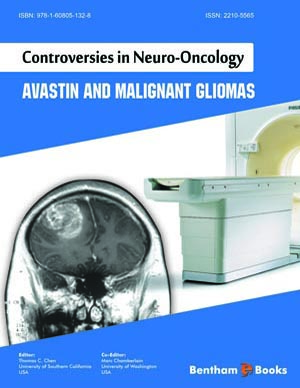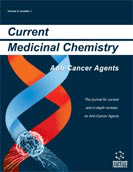Abstract
Malignant gliomas are characterized by an extensive vasculature. The most potent pro-angiogenic factor, vascular endothelial growth factor (VEGF), is therefore a therapeutic target for anti-angiogenic therapy. This chapter focuses on different functional characteristics of VEGF and its receptors in the angiogenesis process. Furthermore, the effects of decreasing or blocking VEGF using the humanized monoclonal antibody to VEGF, bevacizumab (Avastin), are discussed. The possible mechanisms of activity of this agent, as well as potential problems with this drug are also discussed.
About this chapter
Cite this chapter as:
Florence M. Hofman, Thomas C. Chen ;The Basic Science of Avastin (Bevacizumab) Therapy, Controversies in Neuro-Oncology Avastin and Malignant Gliomas (2010) 1: 1. https://doi.org/10.2174/978160805132811001010001
| DOI https://doi.org/10.2174/978160805132811001010001 |
Print ISSN 2210-5565 |
| Publisher Name Bentham Science Publisher |






















